SCC’s Digital Transformation Journey: Spotlight on SCC’s Online Request for Arbitration Form
“SCC is once more leading the way. We are proud to offer a more secure and user-friendly way to initiate arbitration”
Background
SCC Arbitration Institute (SCC) has provided world-class dispute resolution services since 1917. SCC is independent, progressive, and reliable, with the needs of Swedish and international business always at the centre of its work. Every year, SCC receives an average of between 150 to 200 new cases, involving parties from over 40 different jurisdictions.
As one of the world’s top ten arbitral institutes, SCC considers itself to be a thought leader in the field. SCC endeavours to beat the forefront of the development and improvement of arbitration and other methods of dispute resolution.
As the latest iteration of the industrial revolution continues apace, SCC understands the business needs of increased cybersecurity, and of maximising efficiency in dispute resolution. SCC is proud to have launched its new online solution for initiating arbitration proceedings, ensuring a better process for users.
Innovating for its users
Arbitration remains the primary method of resolving international commercial disputes proceedings. In line with the increasingly digital world in which business operates, SCC has pioneered a range of innovative measures in recent years.
Since 2013, SCC administers its cases purely electronically.
Since 2019, all SCC cases have been administered on the SCC Platform, ensuring the parties have a cybersecure one-stop-shop for their disputes.
Since 2020, the SCC has made available its Ad Hoc Platform, ensuring that even parties to ad hoc disputes and other disputes not administered under the SCC Rules have access to a cybersecure online platform.
In April 2024, the SCC launched the online request for arbitration form.
In October 2024, the SCC launched the Guide to the use of AI in cases administered under the SCC Rules.
SCC has worked with leading industry partners to provide its users with cybersecure, reliable and user-friendly services, ensuring a better process.
SCC’s online Request for Arbitration form
Developing its latest innovation
Following the launch of the SCC Platform, SCC has promoted its use for all case-related communications. By using the SCC Platform, parties can be assured that all information and communications reach the eyes of authorised persons only. By reducing the use of email in arbitration, the risk of cybersecurity or GDPR breach breaches is also minimised.
Since 2013, users had been required to initiate an SCC case by sending an email containing the request for arbitration to the Secretariat. Following the advent of the SCC Platform, SCC worked to develop an online form to cater to the evolving needs of the user. The result is a cybersecure, efficient, reliable and user-friendly way to initiate a case at the SCC, the online Request for Arbitration form.
In April 2024, SCC rolled out a new and improved way for parties to initiate arbitration proceedings, SCC’s digital Request for Arbitration form. The form is cybersecure, reliable, and user-friendly. It offers an efficient way for parties to send highly sensitive information and documents to SCC when they initiate arbitration proceedings.
“The SCC has launched a cutting-edge digital solution for initiating arbitration proceedings.” (Angelica Eklöf, Senior Case Administrator, SCC)
“Its user-friendly interface ensures seamless functionality, which contributed to its rapid success, with the first request for arbitration received just four hours after the form went live. With this advancement, the SCC is consolidating its position at the forefront of arbitration, providing faster, more secure, and accessible dispute resolution services.” (Madeleine Thörn, Deputy Secretary General, SCC)
Key features
SCC’s online Request for Arbitration form has the following key features.
Cybersecurity safeguards, such as a bot-free system to prevent unauthorised third parties from accessing confidential and sensitive information.
Confidentiality of the information once the form is submitted to the SCC.
A streamlined and efficient method of initiating arbitration.
Scanning of all documents to protect both SCC and the users from cyberattacks, viruses, and malware.
User response
The form was greatly received by the arbitration community. The SCC reported that the first online Request for Arbitration form was submitted on the same day that the SCC launched the service. Since its first day, a clear majority, approx. 80 % of SCC cases are now initiated through the online Request for Arbitration form.
While simple in its design, it has since become an integral part of the SCC’s Arbitration Institute’s operations and contributes to its status as a pioneer in digital enhancements.
The SCC Arbitration Institute continues to keep its ear to the community to continuously assess where it can add technological advancements to make the service a standout in the field of arbitration and dispute resolution.
What the online Request for Arbitration form looks like
SCC’s online Request for Arbitration form is simple in design, in order to maximise efficiency and user-friendliness.
By filling in the form, users ensure their request for arbitration contains all the information needed for the Secretariat to administer the case, in accordance with the SCC Rules.
Where to locate the form
SCC’s online Request for Arbitration form is available here.
More information about how to commence an arbitration at SCC is available here.
Future plans
SCC will continue its efforts to innovate and ensure a modern, efficient process for its users. In 2025, the SCC will launch brand new features to the SCC Platform and Ad Hoc Platform to further improve efficiency and user-friendliness. Stay tuned.
If you have ideas on how to improve the SCC dispute resolution services, please get in touch with the SCC team.
Please feel free sign up to the SCC newsletter here to receive updates on news, events and other information.
By Madeleine Thörn (Deputy Secretary General, SCC),
Angelica Eklöf (Senior Case Administrator, SCC),
in collaboration with
Mihaela Apostol (Co-founder, ArbTech)







